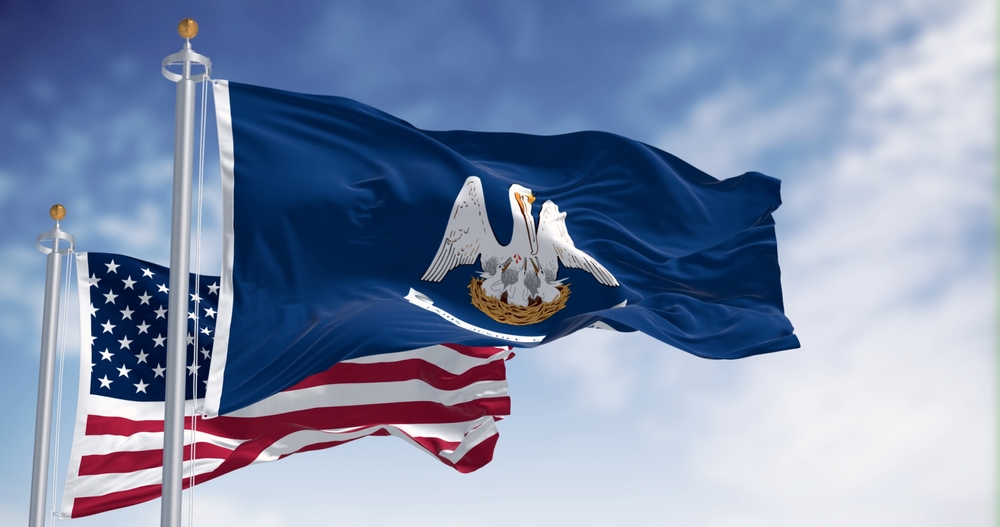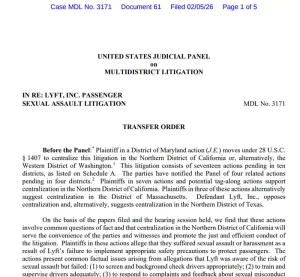Survivors of sexual assault in Louisiana have faced several barriers to receiving justice, such as limited access to records and concerns over anonymous sexual assault kits. In response to the need for stronger protections and transparency for survivors, the Louisiana legislature introduced the Sexual Assault Survivor Bill of Rights, also known as Act No. 669, which went into effect on August 1, 2024.
“The legislature emphasizes that transparency is a fundamental principle of justice, and by introducing a Sexual Assault Survivor Bill of Rights, it aims to remove barriers that prevent survivors from seeking justice,” the statute states.
“The legislation will ensure that survivors are treated with dignity, respect, and compassion, and that their voices are heard. The legislature hereby finds and declares the urgent need to establish a comprehensive sexual assault survivor bill of rights. A bill of rights is of paramount importance in addressing the alarming under-reporting of sexual assault cases and ensuring that survivors receive the support, protection, and justice they deserve.”
What Is The Louisiana Survivor’s Bill of Rights?
Among the provisions, the bill grants survivors the right to access medical and forensic records and extends the time for retaining anonymous kits from one year to 20 years. The Louisiana Sexual Assault Survivors Bill of Rights includes the following 12 provisions:
- The right not to be prevented from, or charged for, receiving a forensic medical exam.
- The right to have an unreported sexual assault collection kit preserved, without charge, for at least twenty years.
- The right to be informed of any results, updates, status, location, and tracking.
- The right to be informed in writing of policies governing the collection and preservation of a sexual assault collection kit.
- The right to be informed in writing from the appropriate official not later than sixty days before the date of the intended destruction or disposal of a sexual assault collection kit, and upon written request, the ability to be granted further preservation of the kit or its probative contents.
- The right to be notified of the ability to request the presence of a sexual assault advocate before the administration of a forensic medical examination or a scheduled interview by a law enforcement official if a sexual assault advocate is reasonably available.
- The right to have access to and obtain a copy of forensic medical examination report at no cost.
- The right not to be requested or required to submit to a polygraph examination as a condition of an investigation or prosecution.
- The right to receive, at no cost, a copy of any records or investigative reports from law enforcement when those records are provided to the defendant through discovery or a year after the offense was reported, whichever is sooner.
- The right to have privileged communications with a representative or employee of a sexual assault center.
- The right not to have the survivor’s DNA obtained from a sexual assault collection kit compared with other DNA records to investigate the survivor.
- The right to retain any other rights that a survivor may have under any other Louisiana law.
According to KESQ, as a result of the new legislation, sexual assault collection kits must be received by a law enforcement agency within 72 hours. In addition, unreported kits will now be tracked by the Lousiana Criminal Intelligence Unit.
Transparency For Survivors In Louisiana
The legislature realizes that transparency allows survivors to share their stories openly and reclaim control of their narratives. Access to records, such as medical reports and forensic evidence, is essential for survivors to make informed decisions about their legal and healthcare options. This ultimately empowers survivors in their healing process and pursuit of justice.
Furthermore, the Survivor’s Bill or Rights is crucial for survivors’ well-being, ensuring they are treated with dignity, respect, and compassion. These rights are upheld regardless of whether the survivor involves law enforcement or undergoes a forensic exam. Additionally, the Bill does not impact laws regarding mandatory reporting or the prosecution of crimes against minors. Moreover, individuals convicted of crimes against survivors cannot use violations of the Sexual Assault Survivor Bill of Rights as a reason to challenge their conviction or sentence.
Survivors Can Now Come Forward When Ready
Perhaps one of the biggest changes the bill introduces is the amount of time sexual assault survivors have the right to have an anonymous assault kit done and reported.
Previously, anonymous sexual assault kits were held for one year, but the new law extends this period to 20 years, giving survivors more time to decide if and when to report the crime. This provision ensures their kits are safely stored, allowing them to come forward when they feel ready, whether for safety reasons or because they need time to process the event.
How Survivors Can Get Justice In Louisiana
Survivors of sexual violence in Louisiana have powerful protections through the Sexual Assault Survivors Bill of Rights. At [NAME], we are committed to helping survivors navigate the legal process, ensuring their rights are upheld every step of the way. With decades of experience advocating for survivors, our dedicated team fights for the justice and accountability they deserve. If you or someone you know is seeking legal guidance, contact [NAME] today to learn how we can support you in your path to justice and healing.




